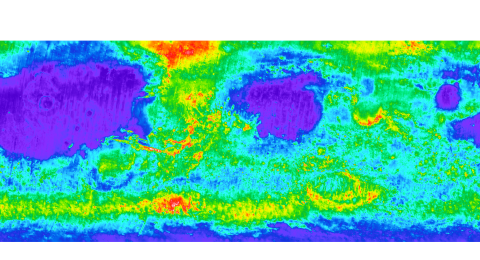The Geospatial Analysis minor at UNH strengthens your ability to analyze and visualize geographic data, critical in fields like urban planning, environmental conservation and public policy. This minor can significantly enhance your employability and expertise, preparing you for diverse roles that rely on geographic insights.
What is geospatial analysis?
The interdisciplinary geospatial analysis minor will introduce you to the theoretical and applied information and technologies for understanding diverse cultures and physical landscapes of the earth. You’ll explore statistics, ecology, geography and anthropology. You’ll learn about the remote sensing, digital image processing, surveying, mapping and geographic information systems used for measurement, observation and analysis. You’ll study the economic and ecological data modeling and structures needed for decision-making. You can combine this minor with a major such as international affairs, geography, environmental sciences or a foreign language to prepare fora wide variety of opportunities in government agencies, business, research and education.
Why study geospatial analysis at UNH?
The U.S. Department of Labor has predicted that geospatial jobs will be one of the fastest growing sectors in the future, giving students with a background in this area a wide variety of opportunities. UNH is a recognized leader in environmental sciences research, and you’ll benefit from the significant depth and breadth of faculty expertise. Take advantage of the study abroad program in Belize, where you’ll get hands-on experience in archeological survey and mapping. Students are encouraged to participate in faculty research projects, and many graduates continue to master’s and doctoral programs.
Potential career areas
- Cartography
- Foreign area offices
- Geography
- GIS analysis
- Intelligence offices
- International affairs
- State departments
- Surveying
- Web development
Curriculum & Requirements
The geospatial analysis minor is designed for students who wish to have more learning and experience using the tools of geospatial analysis such as statistics, aerial photography, satellite imagery, and geographic information systems (GIS) as they relate to their chosen field of study.
Students with questions about the minor or who would like more information should contact Dr. Russell G. Congalton in the Department of Natural Resources and the Environment, (603) 862-4644.
- Academic policies related to Minors.
- The minor consists of completing five courses (20 credits).
- A grade of C- or better is required in each minor course and no course can be taken pass/fail.
- A total of not more than 8 credits from the student's major requirements can be counted toward the minor.
| Code | Title | Credits |
|---|---|---|
| Required Courses | ||
| Basic Statistics | ||
| Select one course from the following: | 4 | |
BIOL 528 | Applied Biostatistics I | |
PSYC 402 | Statistics in Psychology | |
SOC 402 | Statistics | |
Other basic statistics course as approved by minor advisor | ||
| Introductory/Field/or Overview | ||
| Select one course from the following: | 4 | |
CEE 404 | Surveying and Mapping | |
NR 415 | Natural Resources Field Methods | |
NR 615 | Wildlife Habitats | |
NR 642 | Introduction to Biogeography | |
GEOG 591 | Making Maps: GIS Fundamentals | |
NR 757 | Remote Sensing of the Environment | |
ANTH 674 | Archaeological Survey and Mapping in Belize | |
NR 795 | Investigations (Field Methods in GIS) | |
| GIS | ||
| Select one course from the following: | 4 | |
NR 658 | Introduction to Geographic Information Systems | |
NR 760 | Geographic Information Systems in Natural Resources | |
CEE 796 | Special Topics (GIS in Water Resources) | |
ESCI 777 | GIS for Earth & Environmental Sciences | |
| Remote Sensing | ||
| Select one course from the following: | 4 | |
NR 757 | Remote Sensing of the Environment | |
NR 759 | Digital Image Processing for Natural Resources | |
ESCI 778 | Remote Sensing Earth & Environmental Sciences | |
| Advanced Analysis | ||
| Select one course from the following: | 4 | |
NR 707 | Environmental Modeling | |
NR 713 | Quantitative Ecology | |
NR 740 | Inventory and Monitoring of Ecological Communities | |
NR 749 | Forest Inventory and Modeling | |
NR 782 | Forest Health in a Changing World | |
| Total Credits | 20 | |








